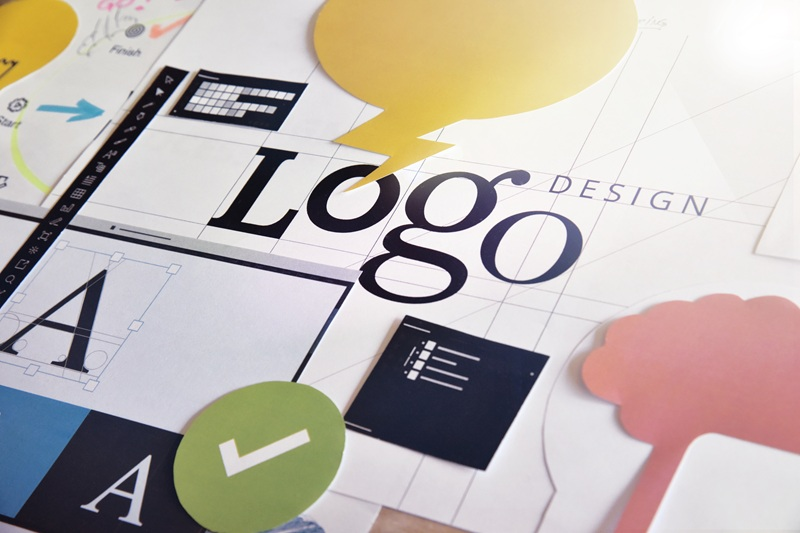
Introduction: Why Your Logo Isn’t Just Artwork
Your logo is often the first impression potential customers have of your business. In just 7 seconds, people make judgments about trustworthiness, quality, and professionalism. But what if the logo you proudly launched years ago no longer reflects who you are today?
This is where a logo redesign comes in. Updating your logo doesn’t mean abandoning your history — it means realigning your brand with your current vision, audience, and goals. In this guide, we’ll explore the signs it’s time to rebrand, common mistakes to avoid, and how to launch a successful logo redesign in 2025.
Why Logo Design Isn’t Forever
Logos evolve — just like businesses and customer expectations. A design that worked in 2010 might now look outdated next to competitors with sleek, minimal, mobile-ready branding.
- Starbucks simplified its logo by removing text and focusing on its iconic siren.
- Google flattened its logo to work better on screens and mobile devices.
- Instagram shifted from skeuomorphic design to a vibrant gradient symbolizing creativity.
These companies understood a key truth: a logo is a living asset, not a static piece of art. To stay relevant, brands must refresh from time to time.
Signs It’s Time to Redesign Your Logo
So how do you know if your logo is ready for a refresh? Look for these clear signs:
1. Outdated Design Elements
Does your logo still use drop shadows, bevel effects, or complex gradients? Design trends have shifted toward clean, minimal, and versatile logos that scale seamlessly across platforms.
2. Business Growth or Pivot
If your company has added services, entered new markets, or shifted focus, your logo may no longer represent your brand accurately. A rebrand aligns your visual identity with your new direction.
3. Poor Digital Performance
Logos must work across websites, apps, social media icons, and tiny favicons. If your current logo looks blurry, cramped, or unreadable at small sizes, it’s time for a redesign.
4. Inconsistent Branding
If you’ve had to create multiple “versions” of your logo to make it fit different formats, you’re losing brand consistency. A good redesign creates flexible logo systems that adapt without losing recognition.
5. Competitive Pressure
If your competitors have updated their visuals and you haven’t, your brand risks looking dated. Customers may assume your services are equally outdated.
Common Mistakes in Logo Redesigns
A logo redesign is a delicate balance. Get it wrong, and you risk alienating loyal customers. Here are mistakes to avoid:
- Overhauling Everything at Once: Sudden drastic changes can confuse your audience. Retain core elements where possible.
- Ignoring Your Brand Story: A logo should reflect your company’s values and mission, not just look trendy.
- Cutting Corners: Cheap or rushed redesigns often lack scalability or originality.
- Not Testing Across Platforms: A logo that looks great on paper but fails on Instagram or your website header won’t work.
How to Rebrand Your Logo the Right Way
A successful logo redesign is more than just “picking a new look.” Here’s a step-by-step approach:
1. Audit Your Current Identity
List what works and what doesn’t. Do customers recognize your color palette? Is your symbol unique? Retain strong elements while identifying weak ones.
2. Define the Purpose of the Redesign
Is this about modernizing the look? Reaching a new audience? Reflecting expanded services? Clear goals ensure the redesign has direction.
3. Simplify for Versatility
Modern logos lean toward flat, clean, and responsive. A well-designed logo should work on:
- A billboard
- A smartphone app icon
- A business card
- A website favicon
4. Explore Responsive Logo Design
Responsive logos have multiple variations: a full logo, a simplified version, and a standalone icon. This ensures your brand works in every space.
5. Consider Motion Logos
With the rise of video and social media, animated logos are increasingly popular. A simple animation can make your brand more memorable on digital platforms.
6. Hire Professional Designers
DIY tools are tempting, but your logo is too important to risk. A professional design team ensures originality, scalability, and alignment with your brand.
Launching Your New Logo
Once your redesign is complete, how you roll it out matters:
- Build Hype: Share teasers and sneak peeks on social media.
- Coordinate Updates: Update your website, email signatures, signage, and print materials at the same time.
- Tell the Story: Explain why you redesigned. Customers appreciate transparency and connection.
- Engage Your Audience: Consider polls or behind-the-scenes posts to involve your followers in the transition.
- Monitor Feedback: Track comments, engagement, and sales metrics to measure impact.
Real-World Example: A Successful Logo Redesign
Imagine a local excavation company that expanded into transportation services. Their original logo featured only heavy machinery, which limited their appeal. By refreshing the design to include a modern typeface and versatile symbol, they aligned the brand with their new scope while retaining recognition.
This is exactly what a strategic logo redesign can achieve — a fresh identity that reflects both heritage and growth.
Conclusion: A Redesign Is a Strategic Move
A logo redesign isn’t just about aesthetics — it’s about aligning your brand with today’s market, technology, and customers. Done correctly, it builds trust, strengthens recognition, and sets you apart from the competition.
If your business logo feels outdated, misaligned, or unscalable, now might be the time to refresh.
At Foxtrot Web Design, we specialize in creating modern, versatile logos that stay true to your brand while preparing you for the future. Let’s reimagine your brand together.
👉 [Contact Foxtrot Web Design today for a free consultation.]

